Nigeria Crypto Tax Calculator
How Tax Works in Nigeria (2025)
Capital gains from crypto transactions are taxed at 30% of the profit.
Platforms must report all transactions to FIRS, and users must declare gains in their annual tax return.
Failure to report can result in fines of ₦10 million for the first month, plus ₦1 million for each additional month of non-compliance.
Results
Back in 2021, if you wanted to buy Bitcoin in Nigeria, your bank might have shut down your account. Crypto traders were forced to use peer-to-peer apps, cash deposits, or offshore accounts just to get started. The Central Bank of Nigeria had banned financial institutions from handling crypto transactions - and for a while, it looked like the country was shutting the door on digital assets for good.
But Nigeria didn’t shut down. It adapted. People kept trading. The volume kept rising. By 2024, Nigeria led the world in peer-to-peer crypto transactions, handling more than $80 billion in a single year. Regulators couldn’t ignore it anymore. And in March 2025, everything changed.
The New Law That Changed Everything
On March 25, 2025, President Bola Ahmed Tinubu signed the Investments and Securities Act (ISA 2025) into law. This wasn’t just an update - it was a full rewrite of how Nigeria treats financial assets. For the first time, crypto is officially recognized under Nigerian securities law.
The ISA 2025 defines a crypto asset as "a digital representation of value that can be transferred, digitally traded and used for payment or investment purposes." That’s important. It means Bitcoin, Ethereum, Solana - and even some NFTs - now fall under the same legal umbrella as stocks and bonds. But here’s the catch: crypto is still not legal tender. You can’t pay your electricity bill or buy fuel with Bitcoin. The Nigerian naira is still the only official currency.
That distinction matters. Crypto isn’t money. It’s an investment asset. And that means it’s now regulated like one.
Who’s in Charge Now?
Before 2025, no one really knew who was in charge. The Central Bank of Nigeria (CBN) banned banks from dealing with crypto. The Securities and Exchange Commission (SEC) issued vague warnings. The Economic and Financial Crimes Commission (EFCC) raided offices without clear legal grounds. It was chaos.
Now, the SEC is the main regulator. It has full authority over crypto exchanges, token sales, investment platforms, and even online forex brokers that offer crypto-like products. All Virtual Asset Service Providers (VASPs) - that’s exchanges, wallets, and trading platforms - must register with the SEC. Quidax and Busha got early approval. Others are still waiting.
The SEC can now audit platforms, freeze accounts, remove executives, and shut down operations. If a platform lies about its security or runs a fake staking program, the SEC can act - fast.
But the SEC doesn’t work alone. It now coordinates with three other agencies:
- CBN: Still controls banking rules and monetary policy. Banks can now open accounts for licensed VASPs - but only if they follow CBN’s AML rules.
- EFCC: Investigates fraud, money laundering, and scams. They can now access telecom records to track suspicious crypto activity.
- NFIU: The Nigerian Financial Intelligence Unit monitors transactions for signs of terrorism financing or illicit flows.
This multi-agency setup is new. It’s designed to close the gaps that scammers used to exploit.
What About Taxes?
If you made money trading crypto in Nigeria before 2025, you probably didn’t pay taxes on it. The government didn’t have a clear system to track it - and most people didn’t know they were supposed to.
That changed with the Nigeria Tax Administration Act (NTAA) 2025, signed in June 2025 and taking effect in 2026. Now, VASPs are legally required to collect and report tax data on every trade, transfer, or withdrawal.
Here’s how it works:
- Every time you sell crypto for naira or swap one coin for another, the platform must record the transaction.
- They must report gains to the Federal Inland Revenue Service (FIRS).
- If you’re a trader or investor, you’re responsible for declaring those gains on your personal tax return.
Non-compliance has serious consequences. A VASP that fails to report for one month faces a ₦10 million fine (about $6,693). Each additional month adds another ₦1 million. The SEC can also suspend or revoke their license. That’s not a warning - it’s a death sentence for a crypto business.
Between July 2024 and June 2025, Nigeria saw $92.1 billion in crypto inflows. That’s nearly double what South Africa handled. The government knows this money is moving - and now it wants its cut.
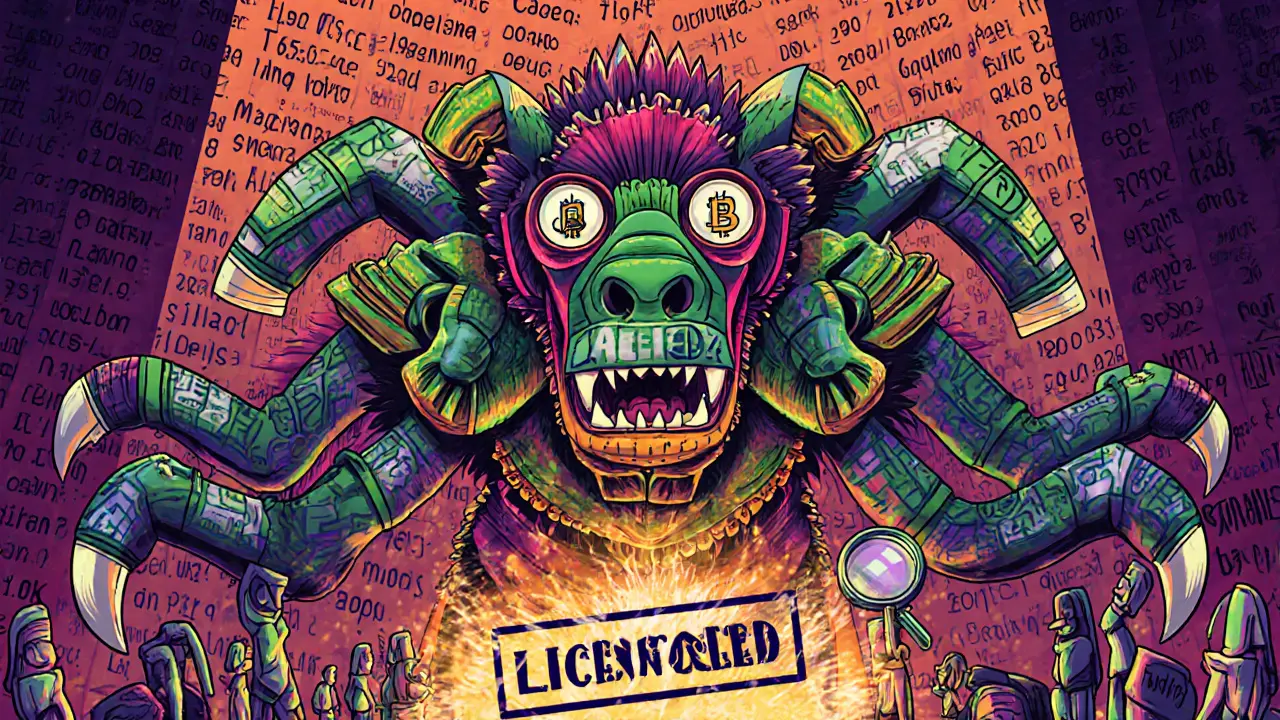
What’s Still Illegal?
Just because crypto is legal doesn’t mean everything is allowed.
Ponzi schemes are now explicitly banned. If someone promises you 10% daily returns on your Bitcoin investment, that’s a crime - and the SEC has new tools to track them down. The EFCC can trace wallet addresses, subpoena exchange records, and even freeze assets before trials begin.
Unlicensed platforms are illegal. If you’re running a crypto exchange out of your apartment and not registered with the SEC, you’re breaking the law. The same goes for influencers promoting crypto tokens without disclosure. The SEC now requires clear disclaimers on all financial promotions.
Government agencies can’t raise money through crypto. If a state wants to issue bonds, they must follow traditional public debt rules - and can’t borrow more than 50% of their projected revenue. That’s to prevent reckless spending masked as "blockchain innovation."
Artistic NFTs are fine. If you’re selling digital art, music, or collectibles as NFTs - and not marketing them as investments - you’re not regulated. But if you say "buy this NFT and earn passive income," you’re now in SEC territory.
What’s Changed for Users?
For everyday Nigerians, the changes are subtle but powerful.
You can still buy Bitcoin on P2P apps like Paxful or LocalBitcoins. You can still send crypto to friends or use it to pay for services overseas. The law doesn’t stop you from using crypto privately.
But if you want to use a Nigerian-based exchange - like Quidax, Binance NG, or RiseX - you now have to go through KYC. Your ID, proof of address, and phone number are verified. Your transactions are logged. Your tax data is reported.
That means less anonymity - but also more safety. Scam platforms are being shut down. Fake staking apps are disappearing. If your funds vanish from a licensed exchange, you have legal recourse.
And for those who want to invest in global markets, the ISA 2025 opens new doors. Platforms like Bamboo now let Nigerians buy U.S. stocks with as little as $10. The law now recognizes these as legitimate investment channels - as long as they’re registered.

What’s Still Unclear?
The law is clear on many things - but not everything.
There’s still no official guidance on how to calculate capital gains. Do you use the price at purchase? At sale? What if you swapped ETH for SOL and then sold it? The FIRS hasn’t released detailed rules yet.
Licensing delays are real. Over 120 VASPs applied for SEC registration. Only 12 have been approved so far. Many smaller platforms are stuck in limbo - unable to operate legally, but afraid to shut down.
And while the SEC has broad powers, it’s still a small agency. It has 300 staff. Nigeria has over 200 million people. Enforcement will be uneven.
Finally, the law doesn’t cover decentralized protocols. If you use Uniswap or a non-custodial wallet to trade directly, there’s no entity to regulate. The SEC can’t touch that - yet.
Where Is Nigeria Headed?
Nigeria’s crypto story is no longer about bans. It’s about control.
The government didn’t try to stop crypto. It realized it couldn’t. So it decided to own it.
By bringing crypto under securities law, taxing it, licensing operators, and cracking down on fraud, Nigeria has created one of the most advanced crypto frameworks in Africa. It’s not perfect. But it’s functional.
Other African nations are watching. Ghana, Kenya, and South Africa are all drafting similar laws. Nigeria’s model - clear rules, strong enforcement, tax integration - might become the template.
For Nigerians, the message is simple: crypto isn’t illegal. But if you’re going to trade it, invest in it, or build a business around it - you play by the rules now. There’s no more hiding. And that’s a good thing.

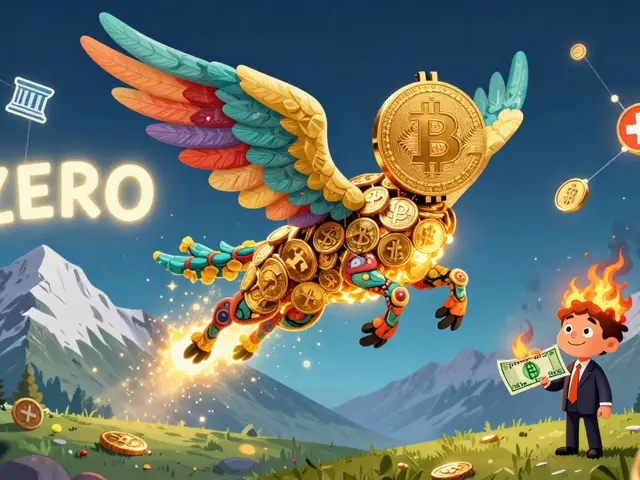

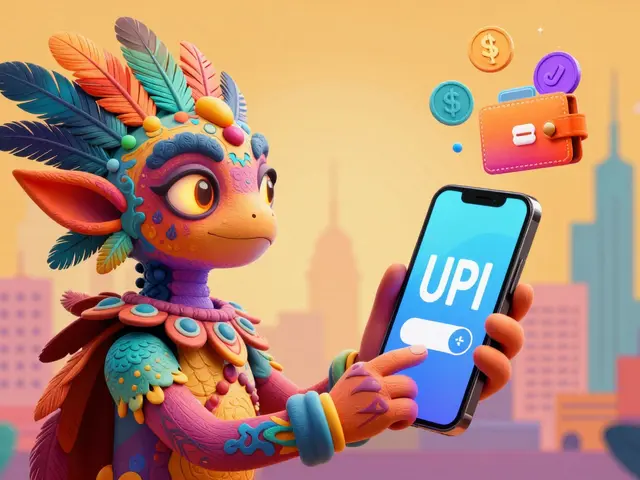

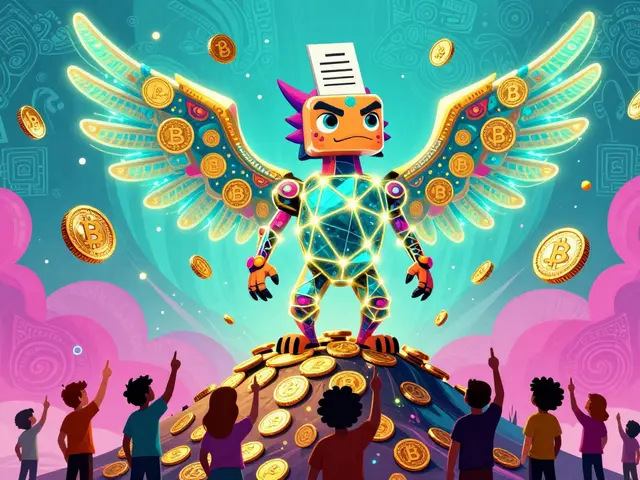



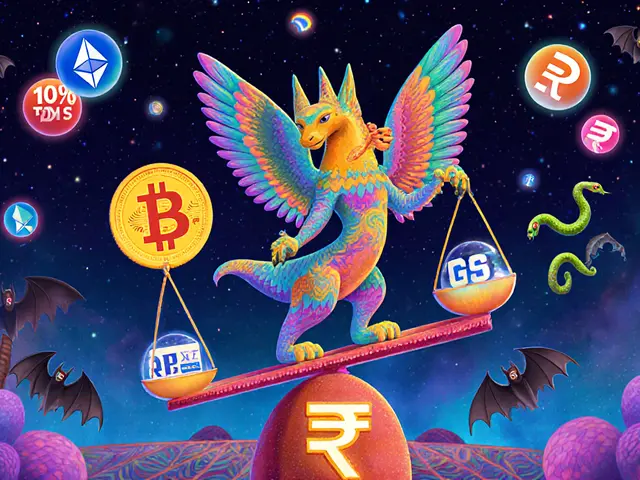

13 Comments
Wow, this is actually one of the clearest breakdowns of Nigeria’s crypto legal shift I’ve seen. The SEC taking the lead with CBN and EFCC backing them? That’s a game-changer. I’ve been watching this from India - we’re still stuck in regulatory limbo, but Nigeria’s model? Pure inspiration. The tax reporting mandate alone could set a global precedent for emerging markets. Kudos to the policymakers for not fighting the tide but riding it. 🙌
While the regulatory framework is undeniably sophisticated, one must consider the practical implications for the average Nigerian citizen. The requirement for VASPs to report every transaction raises legitimate concerns regarding financial privacy, even if the intent is to combat illicit activity. Moreover, the absence of clear capital gains methodology undermines the very transparency the law purports to champion. A robust legal structure without operational clarity is merely a facade.
Man, I love how Nigeria just said ‘nah, we ain’t stopping crypto, we’re just gonna make it official.’ Like, instead of banning it and pushing it underground, they rolled up their sleeves and got to work. That’s leadership. I wish more countries did that instead of panicking when tech outpaces regulation. Also, the fact that NFTs are fine as art but not as ‘investments’? Genius. Keep it simple.
Think about it - this isn’t just law. It’s a metaphysical redefinition of value. For centuries, money was tied to gold, then to paper, then to trust in central banks. Now, in Nigeria, value is being anchored to code - to decentralized, immutable, peer-to-peer networks - and the state is not resisting it. It’s *adopting* it. It’s like watching a river carve a new path through stone, and instead of damming it, they build a canal and start collecting tolls. The irony? The very technology meant to escape control is now being governed by the very institutions it sought to overthrow. History is recursive. And beautiful. And terrifying.
YESSSS this is what I’ve been waiting for!!! 🎉 Nigeria finally got it right - no more shady exchanges, no more fake staking scams, and now you can actually report your gains without feeling like a criminal. I’ve got friends in Lagos who’ve been trading since 2020 and finally feel safe. Also, the fact that they’re taxing it? That’s how you know it’s real. 💸👏
So… crypto’s legal now. Cool. I guess I’ll just keep ignoring it like I always have.
Oh please. ‘Advanced framework’? You call this progress? They’re just turning Bitcoin into another tax trap for the poor. The SEC can’t even handle 300 staff for 200 million people - how’s that gonna work? And don’t get me started on ‘licensed’ exchanges. It’s just another way to hand the market to a few insiders while the rest get fined into oblivion. This isn’t regulation - it’s corporate capture dressed in blockchain glitter.
Great summary. The multi-agency coordination is the real win here - CBN, EFCC, NFIU all talking? That’s rare. Also, the tax reporting requirement is smart. Most people don’t realize how much easier it makes compliance when the platform does the heavy lifting. The real test will be enforcement, but this is the best start Africa’s seen.
uuhhh… so if i swap eth for sol and then sell it… do i pay tax on the eth i bought in 2021 or the sol i sold in 2025?? and what if i used a non custodial wallet?? i think the law is a joke… they dont even know how to track it… and now they want to fine people 10 million naira?? lol… this is why nigeria always messes up… the people who made money already left… the ones left are the ones who lost everything… and now they get taxed??
It’s wild how much the landscape shifted from 2021 to now. I remember when people were using cash deposits just to buy BTC. Now you’ve got formal tax reporting, regulated platforms, even U.S. stock access through Nigerian apps. But the real question is - who’s actually benefiting? The big exchanges? The government? Or the everyday trader who just wants to send money to family abroad? The law says it’s for everyone… but I’m skeptical. The gap between policy and reality is still huge. And the fact that decentralized wallets are untouched? That’s the loophole everyone’s gonna use.
so the sec can freeze accounts but cant tell you how to calculate gains?? lmao. also why does every crypto law have a typo? ‘Investments and Securities Act’? did someone forget to run spellcheck? and why is the tax law effective in 2026 but the reporting starts now? who’s gonna audit the auditors? 🤔
My cousin in Port Harcourt just bought a house with crypto last week - no bank involved, no paperwork, just a wallet transfer and a handshake with the seller. Now? They’re gonna demand KYC? Nah. This law is for the city folks with IDs and phones. Down here in the Delta, we still trade with WhatsApp and airtime vouchers. The SEC can’t regulate what they can’t see. And the people who made millions? They already moved their cash to Dubai. So who’s really paying the tax? The ones who still believe in Nigeria. That’s the tragedy.
Finally, someone in Africa got it right. Nigeria didn’t wait for permission - they took control. This isn’t just crypto regulation - it’s economic sovereignty. Other African nations are watching, and they’ll copy this. The U.S. and EU are still stuck debating whether crypto is a currency or a commodity. Nigeria just said: ‘It’s an asset. We regulate it. We tax it. We move on.’ That’s leadership. The world needs more of this, not more bans.